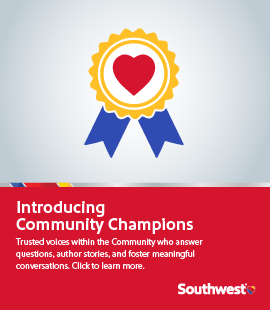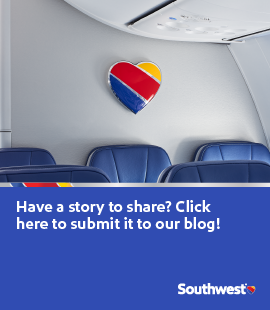11-09-2007
07:00 PM
4 Loves
I just have to chime in on the family preboarding policy changes. I know the families with small children don't like the change, but the old policy just was too rife for abuse. I have flown out of San Diego many times, having been perhaps the third person to check in online and holding an A boarding pass, yet boarded after at least 30 or 40 preboard passengers. Often there were three or four adults per child, and despite what others have said, those preboarders waving C boarding passes most definitely plopped down in the first few rows of the plane. I think the new policy has the best shot at optimizing the experience for most people most of the time. It simply was unfair for parents to check in an hour before the flight yet board first and get the most coveted seats. Yes, car seats, diaper bags, Ziploc bags full of Cheerios, etc do slow them down when boarding, but now they slow things down after the A group instead of before the A group. And if families actually check in early and get A boarding passes, then voila, they can do what anyone else can do--board first!
... View more
04-12-2007
05:53 AM
5 Loves
I just wanted to add a bit of clarification regarding autopilots, autoland, etc. I don't think anyone in this thread has quite nailed the explanation just yet. An autopilot does just what you would expect--maintains altitude and heading as it is instructed, either by the flight management computers, or directly by the pilots. A plane might descend from 20,000 feet to 10,000 feet if the pilots change the altitude instruction the autopilot is given, or if the pilots disconnect the autopilot and manually fly the descent. Autoland is a special feature, performed by an autopilot (actually, three separate functioning autopilot circuits are usually required). For an autoland, instead of the crew disconnecting the autopilot and adjusting the throttle settings, pitch, and heading manually, the autopilot system is left active and it uses guidance from the Instrument Landing System beacons on the airport. A typical instrument approach requires a minimum of 200 feet ceiling and 1/2 mile visibility, but using autoland capability, an aircraft might land in complete whiteout conditions. Southwest uses a version of this scenario in which all flight control inputs are made by the Captain, instead of an autopilot, based on highly precise computer generated guidance again using the ILS beacons. So, in a nutshell, autoland requires an autopilot, but landing in very low visibility does not necessarily, as long as the aircraft and crew are properly equipped and trained. As far as I know, Southwest is the only major airline that chose to have its Captains perform a hand flown low visibility landing instead of an autopilot controlled landing in these conditions.
... View more
02-01-2007
05:49 AM
4 Loves
To AR,
I respectfully suggest you are way off the mark. While it's not nice to call an overweight person gross or smelly, people who are significantly overweight need to face reality when traveling. The seats are the size they are because most people, nearly everyone in fact, can fit into them. People who are too overweight to fit properly in one seat need a second seat. That is reasonable for everyone involved--the overweight flyer, the average weight flyer, and the airline. It is just as unfair for a thin person to be crowded by the girth of an obese person as it is for overweight people to be crammed uncomfortably into a seat that is too small. Furthermore, why should the airline lose valuable revenue because a tiny subset of its passenger base is too large to fit the seats? It's not about greed; it's just fair and reasonable business. There is nothing wrong with an airline making money. I hope Southwest continues to do so, so I may continue to benefit from their low fares and excellent service. And most of all, you need to realize that someone like me is not a bigot, a hater, or ignorant because I believe an overweight person who needs two seats is not being discriminated against when asked to purchase two seats. I suggest saving terms like "bigot" and "discrimination" for the times in our imperfect society when these things actually occur.
... View more

